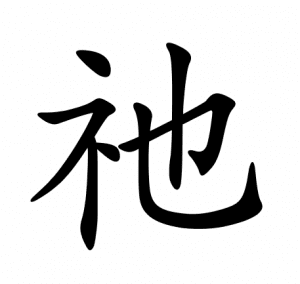 Is God male? Reading about God in the English Bible, we might think so—we can’t even talk about him without using an exclusively male pronoun. And yet we know that God is Spirit, not constrained by human limitations and characteristics. Still, our language, by necessity, is.
Is God male? Reading about God in the English Bible, we might think so—we can’t even talk about him without using an exclusively male pronoun. And yet we know that God is Spirit, not constrained by human limitations and characteristics. Still, our language, by necessity, is.
Monolingual Scripture Studies
Many Christians spend a lot of time studying the Bible. For the English-speaking faithful, this means:
-
- we explore the words of scripture in our favorite Bible translation,
- we compare different passages to each other,
- we try to put them into a historical or cultural context,
- and then we attempt to apply them to our own situation.
When we come to passages that seem difficult to understand, we might consult commentaries or other English translations. And there is no shortage of English translations. The American Bible Society estimates that there are about 900 translations of the whole or part of the Bible into English. About 50 of those are easily accessible to anyone with an internet connection (and possibly a credit card).
English translations may approach a Bible verse or book in radically different ways—within certain parameters, that is—the parameters set by the English language. And that’s true for any language. While almost everything that is expressible through language can be expressed in any language, it simply won’t be.
Confused yet?
Let me explain with a simple but—when it comes to English and most other languages—oh-so-complex example.
It’s about pronouns.
Declaring God’s Divinity Through Grammar
If you had mentioned “pronouns” 20 years ago, you’d likely have been met with furrowed brows and labeled a geek, but today they’re all the rage. Droves of people specify in their social media accounts the pronouns they would like to be identified by, and in colleges it has become the norm rather than the exception for professors to ask with which pronouns students would like to be addressed. While some of the chosen pronouns don’t exactly roll off the tongue easily, others increasingly do—though even the singular “they” took some getting used to.
Our pronoun example has its origin in a Chinese Bible translation, and the story of its implementation—unlike our own current pronoun brouhaha—was smooth, uncontroversial, and utterly theologically profound.
We know that God transcends gender, but most languages are limited to grammatical gender expressed in pronouns. While some languages have no pronominal differentiation when it comes to gender, others have much more complex differentiations than only between gender. (Korean, for instance, has eight different forms of a status-related address.) In the case of modern English, third-person singular pronouns are confined to he, she, and it.
Until 90 years ago, the same was true for modern Chinese. Here, the third-person singular pronoun is always pronounced the same (tā), but it is written differently according to its gender (他 is “he,” 她 is “she,” and 它/牠 is “it”). In each of these characters, the first (or upper) part defines the gender (man, woman, or thing/animal), while the second element gives the clue to its pronunciation.
In 1930, after a full century with dozens of Chinese translations, Bible translator Wang Yuande coined a new “godly” pronoun: 祂. Chinese readers immediately knew how to pronounce it: tā. But they also recognized that the first part of that character, signifying something spiritual, clarified that God has no gender aside from being God.
Multilingual Scripture Studies
Let’s revisit my earlier statement: While almost everything that is expressible through language can be expressed in any language, it simply won’t be. Though it’s certainly possible to explain in English that God has no gender, or to explain that in Chinese it’s linguistically possible to communicate that God has no gender, it’s very different from elegantly demonstrating that fact every time you refer to God with a pronoun. That privilege belongs to Chinese readers alone. (There might be others among the 3000 or so languages that at least parts of the Bible have been translated into, but I’m not aware of it.)
This translation discovery was an aha moment for Chinese believers, but it also benefits those among us who don’t understand Chinese because it expands our comprehension of God’s divine character.
What does this mean for our own study of the Bible? This example of the divine Chinese pronoun is one of more than 2000 stories in a free tool called Translation Insights & Perspectives that can reveal perspectives unavailable in our English Bibles, even if we are privileged with more translations than any other language in the world.
(And not to worry: Not everything in the Translation Insights & Perspectives tool is about pronouns. Check out this story from the Aekyom language about Jesus with his twelve turtles or Abraham’s promised offspring being as numerous as the tree flowers in the jungle in Bauzi.)
Jost Zetzsche is a professional translator who lives at the Oregon coast. Originally from Hamburg, Germany, he earned a Ph.D. for a dissertation on the history of Chinese Bible translation at the University of Hamburg in 1996. In 1999, Jost co-founded International Writers’ Group, LLC, on the Oregon coast. Since 2016 he has been contracting with United Bible Societies to help create and maintain the Translation Insights and Perspectives (TIPs) tool.













